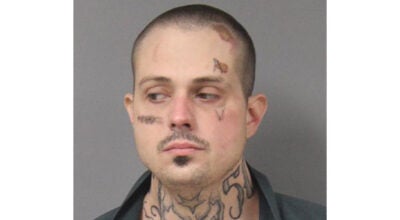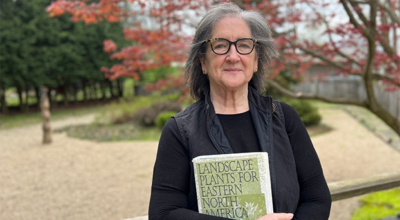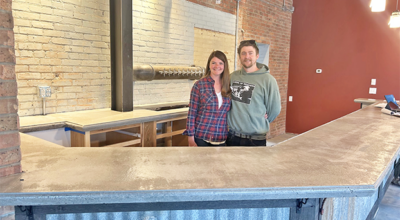Elkhart County prosecutor visits Dowagiac Rotary Club
Published 9:03 am Friday, October 30, 2009
 By JOHN EBY
By JOHN EBY
Dowagiac Daily News
When Elkhart County, Ind., Prosecutor Curtis T. Hill Jr. defends plea bargaining as “necessary,” it’s from his perspective as its first fulltime prosecuting attorney since 2003 in a county of 200,000 – four times the size of Cass County.
Hill, an honorary Rotarian who spoke to the Dowagiac club Thursday noon at Elks Lodge 889 as the guest of Cass County Prosecutor Victor Fitz, who also started here in 2003, coming from Muskegon.
Fitz remembers the warm welcome Hill, late Berrien County Prosecutor Jim Cherry and St. Joseph County, Ind., Prosecutor Michael Dvorak gave him into the “fraternity.”
Hill was a part-time deputy prosecutor for 14 years with Michael Cosentino.
“They all took time to talk to me, and I can remember meeting with Curtis Hill in his office in a renovated bank,” Fitz said. “A sign that his colleagues hold him in high respect is that he is president of the Indiana Prosecuting Attorneys Association.
“He’s been very helpful to my office – and frankly, we need his help more often than he probably needs ours. Dave Gizzi from Dowagiac (a longtime detective with the Cass County Sheriff’s Office) now works in Curtis Hill’s office.”
Hill focused his remarks on methamphetamine, which was known in law enforcement circles, but had not yet become a “household word” when he took office in 2003.
“Today, I don’t think there’s anybody who hasn’t,” he said. “That’s how quickly this thing has really come up on the consciousness of the community. In the old days we heard of meth labs in rural areas. In Elkhart County, we had an unusual situation. Until recently, it had been a thriving economic engine. So it got hit the hardest when things went down. We’ve got the Toll Road running right through us, we’ve got close proximity to Chicago and Detroit, we’ve got lots of businesses, lots of entrepreneurs. Lots of things are going on in Elkhart to attract good businesses. But those things also attract bad businesses. We also have a very large Hispanic population which has come into the area in the last 20 years. Within that market, you’ve got some no-goodniks who sneak in with them.”
Hill said Elkhart didn’t have meth labs so much as meth imported from Mexico.
“Either made in labs in Mexico,” he said, “or produced in super labs in California and making their way across the Plains and coming to Elkhart as a distribution point for areas east, west, north and south.
“Also, we have a pretty decent meth appetite within our own community. You have to understand, you’re never going to get rid of meth in your community until you get rid of meth users.
“Our problem was we had a new battle. Back in the old days of just doing marijuana busts and crack cocaine, it was very simple. We would have undercover officers infiltrate, get some buys, build some cases.
“This was different because now we had an organized criminal enterprise that was within our community that spoke an entirely different language than most of the people who operate within our law enforcement community.
“At the time we were supposedly working on the problem with DEA (federal Drug Enforcement Administration), which is a whole ‘nother can of worms. To their credit, the feds have an interest in a bigger picture than our local communities. They look to build historic cases in a particular area. They are willing to let an area crumble while they are building this case, so they can go after somebody someplace else. When we met with the U.S. Attorney’s Office and the DEA, they kept saying, ‘We’re working on this problem you have with Mexican meth if you can just kind of stay out of the way.’
“Their idea of working on it was to know where it’s at, to make buys, to try to build information but to let it continue on,” said Hill.
“I could actually see stores cropping up all down Main Street in Elkhart that were getting to the point that they were ready to legitimize. They were making enough money through they ill-gotten gains to actually have decent storefronts, businesses and homes.”
“We decided to do something different and we told the feds (goodbye),” Hill said. “We have an ICE unit of our own.”
ICE stands for Interdiction and Covert Enforcement. It works directly under Hill’s supervision.
“The objective we have is to eliminate all drugs from our area,” he said. “That might seem lofty, but I’m not going to make a goal to say we’re going to eliminate 40 percent. What do you do when you get to 40 percent? We need to eliminate this stuff. Period.
“Over three years we found ways to infiltrate these Mexican organizations. We sent several of these scoundrels to jail. I don’t apologize for sending them to jail for 30, 40 or 50 years for major drugs in Elkhart County. My responsibility is to keep safe people who don’t use drugs. We did a nice job of effectively getting rid of the Mexican meth,” which went from $4,000 a pound to $18,000 as a reflection of demand exceeding shrinking supplies.
However, Hill said, “the other shoe” was “rascals who work in our factories and live in our neighborhoods who want to use this highly addictive stuff. If they still want to use it, and we cut off their source, guess what they do? They start making their own.
“That’s the problem everyone else already experienced. In Indiana, Elkhart County has the most meth labs of all the counties in the state. What this number really represents is when we have 83 meth labs in Elkhart County, that number is based on seizures. That means we took the most meth labs out of commission in Indiana. I can’t tell you we have more or less than any other county in the state. I can tell you we shut down more than any other county in the state, so that’s not all bad news.
“We have a very aggressive seizure program. Why just arrest these folks? If we get an opportunity to take their stuff and use it against them, we ought to be doing that. We initiated a forfeiture program with law enforcement in 2005 to seize cash, vehicles and equipment … I’ve created a formula to return these assets in cash back to law enforcement for their use.”
To date, that amounts to more than $600,000.
Another $600,000 “is in the pipeline,” not counting a $300,000 “snag” a few weeks ago that was vacuum-packed cash so 29 pounds fit in a duffel bag.
“It was done very professionally, but the people we got it from were simpletons,” Hill said. “They were (cocaine) mules.”
Hill said, “Marijuana, number one, nobody doing harder drugs didn’t start with marijuana. From a financing standpoint, the sale of marijuana is precisely what finances big operations in Mexico and elsewhere.
“When you say, ‘Oh, it’s just some kids or some young people smoking it, it’s not a big deal, it’s not violent,’ that’s rubbish. Every piece of one little marijuana cigarette has as much impact in destroying this community as anything else. You have to stand firm. Plus, I don’t want to live in a community where people are walking around in a hazy daze of fog and blur. It’s amazing to me that people think that’s okay.”
Retired social worker Marilu Franks questioned Hill about plea bargaining.
“No prosecutor enjoys it, but it’s necessary because of the sheer volume of cases we have with the resources we have. In Elkhart County, I have 11 courts” scattered between Elkhart, Goshen and Nappanee.
“About 20,000 cases go into those courts,” he said. “A huge number, 15,000 or so, are infractions. If we have 2,500 felonies, I could not try all 2,500 filed this year in 11 courts, each with 52 weeks a year to operate. A trial takes three to four days. There’s also a civil docket for divorces, mortgage foreclosures … From sheer numbers, we have to engage in alternatives to process our cases. There is a pecking order. Murder is the granddaddy of cases. You don’t see plea bargains on murder cases, like on the lower end for minor theft or public intoxication. If done properly, they’re not a way for people to ‘get away with it.’ ”
While his office is political in the sense he must be elected by voters, “The job we do is not political. The key role of a prosecuting attorney is to do the right thing,” Hill said. “Many people think the role is to get convictions. Not true. It’s as important for us as prosecutors to make sure that people who should not be convicted are not convicted. If we don’t do that job properly, there’s no one else out there to do it. It’s a very hefty responsibility.”
“Some of the most difficult decisions I’ve had to make as a prosecutor are decisions not to prosecute,” he added, giving as an example a Toll Road truck crash which left eight dead.
“A big semi tractor rammed into some vehicles,” Hill said. “Before they were done investigating the scene, I was getting calls from people: ‘You’re going to go after the guy, aren’t you, Curtis?’ The easy thing to do is to file the case. The tough thing to do is to not file the case when there’s a whole lot of people clamoring. We have to look at what’s right.
“In this particular investigation, this truck driver was not speeding, the truck driver had no alcohol or drugs in his system. His log books were fine. What he’d done was as he was driving, he looked down momentarily to plug in the charger on his phone. Should he have done it? No. Was he negligent? Yes. But in our system we don’t hold people criminally responsible for mere negligent behavior. Certainly someone can sue them civilly, but we’re talking about taking someone’s liberty. We have to make decisions like that. Someone said to me at the press conference, ‘Well, eight people are dead.’ That’s a horrific result, but there again, we look at the conduct of the people,” Hill said. “I’m proud to be part of a profession that can look at things in such a manner. One of the things that is very important to me as a prosecutor is that we work together, not only in our local areas, but with our regional partners to make sure we’re all on the same playbook.”
Judge Herbert Phillipson recalled serving as part-time Cass County prosecutor in 1959-60 with one part-time secretary and a salary that never reached $6,000.
“Our only drug was alcohol,” Phillipson said. “You had to go to Chapin Street in South Bend for marijuana. I think I tried as many cases as they do now, eight jury trials the first year and six the next.”
Hill, reminding his audience that the hapless district attorney on the old Perry Mason show was named Hamilton Burger – “Ham Burger; they got people conditioned that prosecutors were old hamburger” – is a riveting storyteller, as he demonstrated relating the preparation of his remarks during a two-hour flight from a Denver conference to Chicago’s O’Hare airport.
“You know how you fly, you’re at the mercy of the person they sit you next to?” he began.
His seatmate was not only talkative, but a card-carrying Mensa member who wanted to play a wagering game with his high IQ.
The man offered to ask Hill a question, “and if you don’t have the right answer, you have to pull out your wallet and give me $5. But then, you ask me a question, and if I don’t have the answer, I’ll pull out my wallet and give you $100.”
“This guy was pretty annoying,” Hill said, “but I kind of liked those odds.”
The man asked Hill for the distance between Earth’s core and the planet’s surface. Hill peeled off $5, “tickling” its recipient.
Hill countered with, “What has three legs going uphill, and four coming back down?”
“He’s puzzled,” Hill recounted.
“He’s got this stunned look on his face. He searched for the answer the rest of the trip, which was very beneficial to me. As we taxi up at O’Hare, he’s going nuts. When the sign says you can turn your electronic stuff on, he pulls out his laptop and tries to research this.”
As they deplaned, Mensa gave up, pulled out his wallet and unburdened himself of a $100 bill.
As Hill walks away, the man says, “Wait a second. What has three legs going uphill and four going back down?”
“I pulled out my wallet and gave him $5,” Hill concludes.






